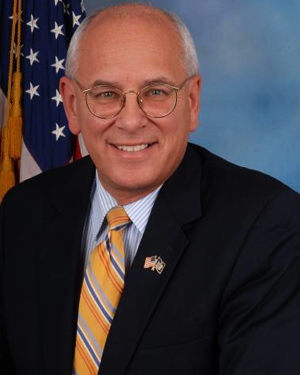In our previous EarthDesk post we examined the connection between the Charleston, WV spill into the Elk River, the failed Federal Toxic Substances Control Act (TSCA), and our home river, the Hudson.
 On January 13, Representive Paul Tonko, the Hudson River Valley’s leading environmental congressman, joined Representative Henry Waxman in calling for a hearing to examine the law in light of the little known about 4-methylcyclohexane methanol (MCHN), the chemical spilled by Freedom Industries on January 9. The drinking water of 300,00 people in around Charleston was affected and the public water supply rendered unusable for most of a week.
On January 13, Representive Paul Tonko, the Hudson River Valley’s leading environmental congressman, joined Representative Henry Waxman in calling for a hearing to examine the law in light of the little known about 4-methylcyclohexane methanol (MCHN), the chemical spilled by Freedom Industries on January 9. The drinking water of 300,00 people in around Charleston was affected and the public water supply rendered unusable for most of a week.
The New York Times, in an April 18 editorial criticized TSCA at length. An excerpt:
For the most part, the law requires the government to prove that a chemical is unsafe before it can be removed or kept off the market instead of requiring manufacturers to prove that their chemicals are safe before they can be sold and used.
See more at EarthDesk, December 19, 2013.
Following is the letter from Congressmen Tonko and Waxman to Representative John Shimkus, Chairman of the House Subcommittee on Energy and Commerce:
January 13, 2014
The Honorable John Shimkus
Chairman
Subcommittee on Environment and the Economy
Committee on Energy and Commerce
2125 Rayburn House Office Building
Washington, DC 20515
Dear Chairman Shimkus:
Late last week, residents of nine counties in West Virginia learned that their water supply had been contaminated with a toxic chemical for which emergency responders and regulators had precious little information. We are writing to request that you immediately schedule a hearing to examine the regulatory gaps that this incident has exposed in the nation’s toxic chemical control laws.
On Thursday, January 9, the Kanawha County Fire Department and the West Virginia Department of Environmental Protection discovered a chemical leak from a 35,000-gallon storage tank operated by Freedom Industries. The chemical—4-methylcyclohexane methanol, also known as crude MCHM—had leaked from the tank, overflowed a containment area, and seeped into the Elk River. The storage tank is located just one mile upstream from an intake for the West Virginia American Water Company plant.
State officials quickly issued a stop-use warning to water customers in nine West Virginia counties. But these officials were soon confronted with a lack of information about crude MCHM, which is used to clean coal.
The Material Safety Data Sheet for crude MCHM provides no information about the potential acute or long-term health effects from exposure to or ingestion of the chemical. One day after the spill was discovered, the president of the West Virginia American Water Company told the public that he did not know much about the hazards posed by the chemical and was not yet aware of an effective treatment process. He stated, “We don’t know that the water is not safe. But I can’t say that it is safe.”
On January 11, two days after the spill was discovered, the West Virginia Department of Health and Human Services announced a level of crude MCHM that scientists believe is safe for human consumption—one part per million. The agency explained that this figure is based on the only health study of the chemical scientists could find: a 1990 study by Eastman, the product’s manufacturer, that was not published in a peer-reviewed journal.
This incident raises an important question that merits the Subcommittee’s attention. Simply, why don’t we know more about the potential health effects of exposure to this chemical?
As we begin to consider ideas to reform the Toxic Substances Control Act (TSCA), it is critically important that we understand how the law allowed a potentially harmful chemical to remain virtually untested for nearly forty years. Even if scientists and regulators now turn their attention to the risks posed by MCHM, we should not have to wait for a major contamination event to learn the most basic information about a toxic chemical in commerce.
We urge you to schedule a hearing to examine the chemical contamination that has occurred in West Virginia and its relevance to the committee’s consideration of TSCA reform legislation.
Sincerely,
Henry A. Waxman
Ranking Member
Paul D. Tonko
Ranking Member
Subcommittee on Environment and the Economy









